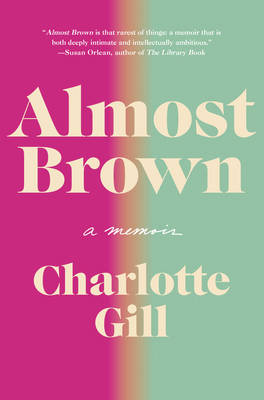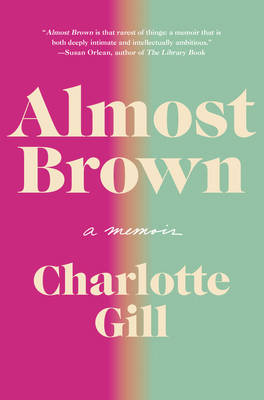
- Afhalen na 1 uur in een winkel met voorraad
- Gratis thuislevering in België vanaf € 30
- Ruim aanbod met 7 miljoen producten
- Afhalen na 1 uur in een winkel met voorraad
- Gratis thuislevering in België vanaf € 30
- Ruim aanbod met 7 miljoen producten
Zoeken
Omschrijving
An award-winning writer retraces her dysfunctional, biracial, globe-trotting family's journey as she reckons with ethnicity and belonging, diversity and race, and the complexities of life within a multicultural household. "Almost Brown is that rarest of things: a memoir that is both deeply intimate and intellectually ambitious."--Susan Orlean, author of The Library Book Charlotte Gill's father is Indian. Her mother is English. They meet in 1960s London when the world is not quite ready for interracial love. Their union results in a total meltdown of familial relations, a lot of immigration paperwork, and three children, all in varying shades of tan. Together they set off on a journey from the United Kingdom to Canada to the United States in an elusive pursuit of life, liberty, and happiness--a dream that eventually tears them apart. Almost Brown is an exploration of diasporic intermingling involving two eccentric parents from worlds apart and their half-brown children as they experience the paradoxes and conundrums of life as it's lived between race checkboxes. Their intercultural experiment features turbans and tube socks, chana masala and Cherry Coke. Over time, Gill's parents drift apart because they just aren't compatible. But as she too finds herself distancing from her father--Why is she embarrassed to walk down the street with him and not her mom?--she doesn't know if it's because of his personality or his race. Is this her own unconscious bias favoring one parent over the other in the racial tug-of-war that plagues our society? Almost Brown looks for answers to questions shared by many mixed-race people: What am I? What does it mean to be a person of color when the concept is a societal invention and really only applies halfway if you are half white? Eventually, after years of silence, Gill and her father reclaim a space for forgiveness and love. In a funny, turbulent, and ultimately heartwarming story, Gill examines the brilliant messiness of ancestry, "diversity," and the idea of "race," a historical concept that still informs our beliefs about ethnicity today.
Specificaties
Betrokkenen
- Auteur(s):
- Uitgeverij:
Inhoud
- Aantal bladzijden:
- 256
- Taal:
- Engels
Eigenschappen
- Productcode (EAN):
- 9780593443019
- Verschijningsdatum:
- 6/06/2023
- Uitvoering:
- Hardcover
- Formaat:
- Genaaid
- Afmetingen:
- 142 mm x 212 mm
- Gewicht:
- 362 g

Alleen bij Standaard Boekhandel
+ 64 punten op je klantenkaart van Standaard Boekhandel
Beoordelingen
We publiceren alleen reviews die voldoen aan de voorwaarden voor reviews. Bekijk onze voorwaarden voor reviews.












